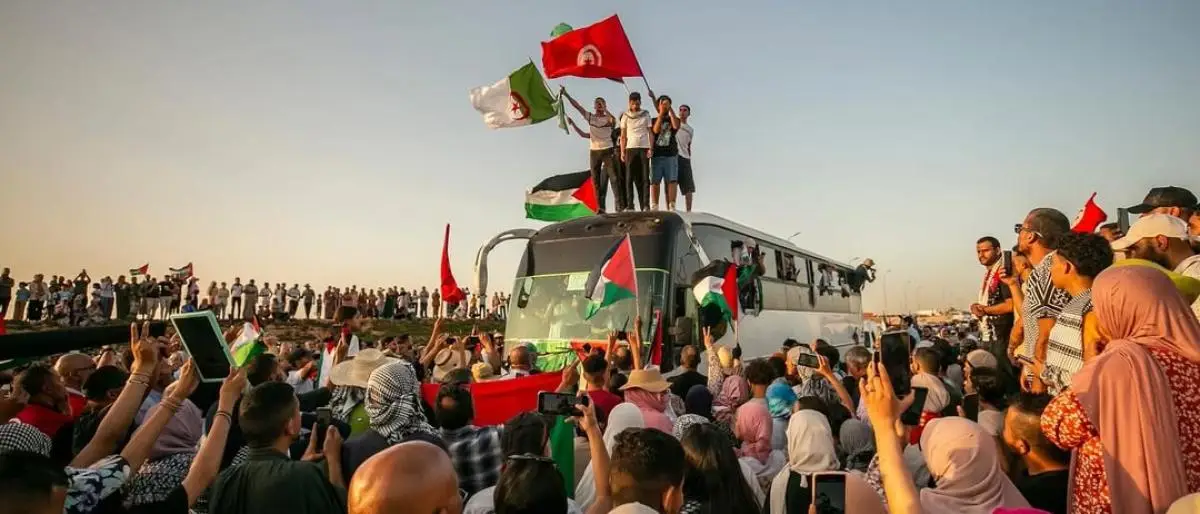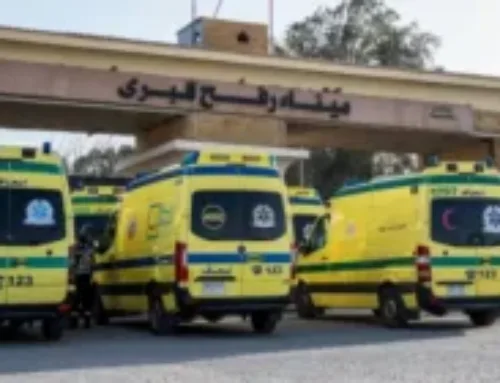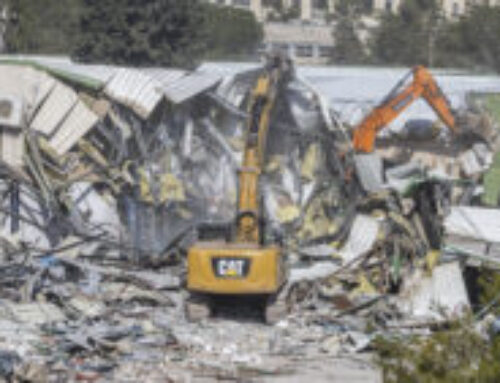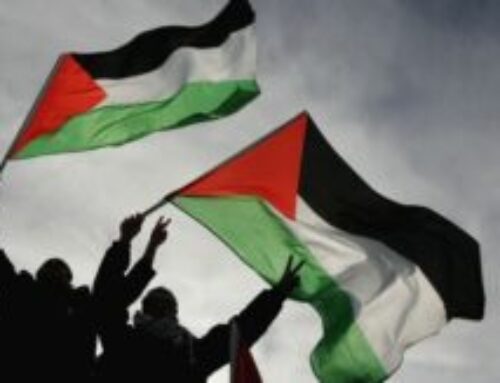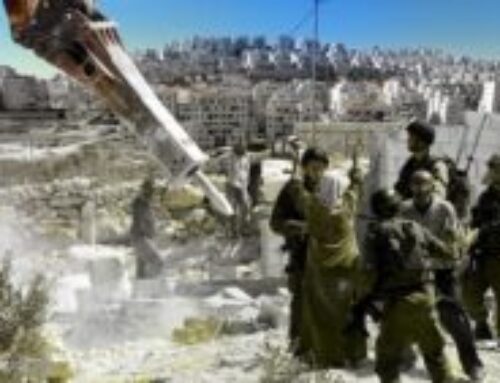In a world moving forward with indifference to the cries of the besieged, the blockade-breaking caravans to Gaza surged like sails of hope defying the raging winds, only to be crushed at the thresholds of sea, land, and borders.
These caravans were more than mere aid shipments; they were cries of life and practical steps that shook the walls of silence surrounding the wounded strip.
Madeleine… The Ship of Hope Seized by Shackles
At the forefront of these caravans was the ship Madeleine, named after the courageous Palestinian fisherwoman Madeleine Kalab, which sailed the sea accompanied by activists from several countries, carrying with them some food, some medicine, and a great deal of conscience.
The ship set sail from Sicily, defying the naval blockade imposed on Gaza. Despite the disturbing drone surveillance and the intense jamming by the usurping entity, the activists pressed on, chanting: “You are not alone.”
Yet, the usurping entity did not hesitate to intercept the ship in international waters detaining the activists whose only weapon was their humanity.
Madeleine became a global symbol of civil resistance and sparked a wave of condemnations from wide international circles. Human rights organizations affirmed that the blockade imposed on Gaza is not only illegal but a crime against humanity.
In one of the strongest messages of human solidarity, Swedish activist Greta Thunberg, who took part in the Madeleine mission, declared:
“I am ready to risk my life to deliver 100 kilograms of flour to Gaza.”
Her words were not a passing slogan but a declaration of defiance and determination to break the blockade wall, even at the cost of her own life.
In a supportive stance, the leader of the La France Insoumise (France Unbowed) party called on the European Union, the United Nations, and the international community to “condemn the unlawful detention of the activists aboard the ship Madeleine,” stressing that what occurred was a blatant violation of all humanitarian laws.
Madeleine Kalab, the Palestinian fisherwoman, was one of the very few—if not the only—women practicing fishing in the Gaza Strip before the outbreak of the war on October 7, 2023.
Her story of struggle became a symbol of resistance in the face of the usurping entity’s blockade and the harsh economic conditions in the Strip.
The Resilience Caravan… The Land Route under Siege
On land, the Resilience Caravan set off from Tunisia and Algeria—human caravans that crossed the borders of the Maghreb, loaded with symbolic aid and heavy hopes.
It crossed Tunisia and western Libya, accompanied by crowds of activists, doctors, lawyers, and religious figures in a transnational popular movement.
But it was forcibly stopped near Sirte, Libya, after being denied passage toward Egypt under the pretext of lacking coordination.
The caravan was detained in the desert, its communications were cut, some participants were arrested, and at the end, it was forced to return. Yet its voice continued to echo: Gaza is not alone.
The Dignity Caravan… Lebanon on the Road
From Lebanon, the Dignity Caravan set off, bringing together Lebanese and Palestinians, reaching the Syrian border in hope of crossing.
But the caravan was halted, as the Syrian authorities refused to grant passage without official coordination.
The volunteers spent the night in the open, waiting for permission that never came. They eventually turned back, but they returned having delivered the message: Gaza is not alone.
Caravans That Awaken Conscience
These three caravans—Madeleine, Steadfastness, and Dignity—despite being besieged and obstructed, awakened waves of solidarity across Arab and global streets.
Demonstrations erupted in Algeria, Tunisia, Libya, and Mauritania, while major organizations such as the Tunisian General Labor Union, medical and lawyers’ syndicates in Tunisia, political parties, and prominent figures in Algeria and Lebanon expressed their support.
European countries summoned ambassadors of the usurping entity to protest the interception of Madeleine, and human rights organizations deemed the attack on the ship an act of piracy.
Though these caravans were turned back at the borders, they did not return defeated. They succeeded in stirring stagnant waters, breaking the silence, and exposing the brutality of the blockade tightening around the necks of Gaza’s children.
Gaza… Starvation Under Siege
The reality in Gaza is catastrophically indescribable. UN and humanitarian reports confirmed that more than 90% of the population suffers from severe shortages of food, water, and medicine.
Half a million people are on the brink of famine. Gaza’s hospitals are declaring their inability to provide care, medicine warehouses are empty, water desalination plants are destroyed, and the infrastructure is in total collapse.
Children are falling ill, the elderly are dying of thirst, and clean water is almost non-existent. Doctors have documented deaths resulting from drinking seawater and the spread of infectious diseases within displacement camps.
The United Nations describes the scene as a “systematic dismantling of the foundations of life,” and the World Health Organization warns of an uncontrollable health catastrophe.
Amnesty International classified the blockade as a collective crime targeting more than two million people, demanding its immediate end and the accountability of those responsible.
Why Are the Caravans Important?
They remind the world that Gaza is still alive in pain. Even if they are stopped, the caravans ignite the spark of global memory. They are tools of popular and moral pressure that embarrass the usurping entity and break the silence. These caravans breathe life into the cause, give it an image, and place it at the forefront.
The caravans are alarm bells. They must continue, increase, and evolve into an unstoppable wave. Popular and official efforts must persist, and Arab and international governments must facilitate the passage of these caravans, not obstruct them. The road to Gaza must remain open for hope.
The caravans have returned, but they have returned to testify, to expose, to awaken consciences. They have returned having delivered the message: Gaza is not alone. Gaza is in our hearts.
The free peoples must remain on the front lines, and the world must act—not with words, but with deeds—until the blockade is broken and the road to life is opened.

